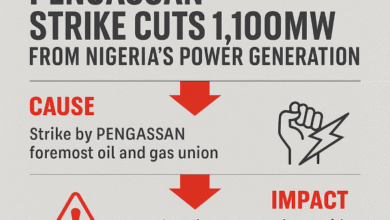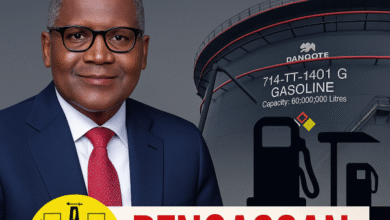Trade remains key means of implementing 2030 Agenda – UN
 Trade has been and continues to be one of the key means of implementing the 2030 Agenda, says Guy Ryder, Under-Secretary-General for Policy, Executive Office of the United Nations Secretary-General.
Trade has been and continues to be one of the key means of implementing the 2030 Agenda, says Guy Ryder, Under-Secretary-General for Policy, Executive Office of the United Nations Secretary-General.
Ryder made this known on Monday while speaking at the United Nations Trade Forum 2023 hosted, in hybrid form, by the United Nations Conference on Trade and Development (UNCTAD).
He said trade was an important tool to achieving many of the Sustainable Development Goals (SDGs).
According to him, further action is needed to boost developing countries capacities in the area of trade, and to align global trading rules with the SDGs so that trade delivers for all policy objectives.
He said that a fairer and more resilient multilateral trading system which was open, rules based, transparent and non discriminatory, was an integral part of the inclusive, networked and effective multilateralism envisaged in the common agenda.
“At the midway point towards 2030, we are all keenly aware that the SDGs are severely off track. The promise of leaving no one behind is in peril, and with it, the hope and rights of current and future generations.
“A fundamental shift is needed in commitment, solidarity, financing and accelerated actions to put the world on a better path,” he said.
He noted that the SDG Summit coming up in September must signal a turning point to deliver a rescue plan for people and planet, stressing that the tasks ahead were daunting, in today’s world of interconnected crises and challenges.
Ryder said the common agenda was that of action to strengthen global cooperation for inclusive networked and effective multilateralism to better respond to humanity’s most pressing challenges.
This, he said, was aimed at turbocharging the 2030 agenda and make the SDGs real in the lives of people everywhere.
According to him, UN member states have agreed to hold a summit of the future in 2024.
Ryder noted that the summit of the future would build upon 2023 SDG Summit, an aim to breathe new life into the multilateral system so that it can deliver on the promises of the United Nations Charter and the 2030 agenda.
“This will be a generational opportunity to reinvigorate global action, recommit to our fundamental principles and develop multilateral frameworks that work for today’s world and move us into the future that we want,” he said.
Pedro Moreno, Deputy Secretary-General, UNCTAD, said the UN trade forum was a space to explore options to harness the power of trade in the wanted direction.
“We need more trade and for this, we need first of all, a trading system that is more resilient.”
According to Moreno, a credible and coherent trading system of global trade rules brings stability and resilience and is central for attracting investment.
This, he said, was crucial for developing countries.
He, however, said the recent crises had revealed that vulnerabilities and imbalances were present in the system.
“The multiple shocks we have faced from COVID-19, to the war in Ukraine or the constant threat of climate change have eroded the momentum and diverted action to achieve the SDGs.
“But the bleak situation does not mean that we should give up our aspirations, rather the opposite. It means that we need determined action to change course.”
Moreno added that trade must become more inclusive and create equal opportunities for all.
“Participating in trade requires finance and multilateral development banks have made significant efforts to help developing country traders through grants and loans to keep trade moving in the poorest countries.
“But it is not enough. The international community must promote more private sector capital to make trade finance available to developing countries,” he said.











